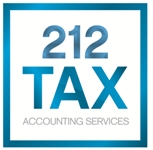Lindsay Fein was surprised when she learned her previous employer failed to claim her state income tax for the final two years she worked there. They notified her of the error the following year, and she was left unsure of how to proceed. She knew she needed to pay the taxes she owed, but she didn’t know how to do so accurately and at the least cost to her.
Anil from 212 Tax was able to take control of the situation by directing Lindsay to right forms and completing them accurately on her behalf. It can be scary to realize you’ve made a mistake on your taxes, but you have options to rectify the problem before the IRS gets involved. Here’s what you should do if you incorrectly filed your taxes.
First, you need to recognize your errors.
In Lindsay’s case, she didn’t realize a mistake had happened with her employer until a year later. Her previous company notified her of the mistake, urging her to file this change in her current year to avoid any penalties. While employers sometimes can make these errors, they can also occur if you’re filing on your own. Whether you notice a math error or you claimed something you realized was not permissible, you need to first recognize all the places you need to remedy.
Do your best to resolve the issue quickly.
Once you’ve identified your errors in filing, you need to take action promptly to avoid any unwanted attention from the IRS. While the IRS has systems in place to review all tax documents, it is possible they did not catch a small error. It is always best to remedy your tax situation as quickly as possible to avoid later confrontations with the IRS or other state tax authorities. While it’s normal to be anxious, remember the sooner you address the problem, the sooner you can move on with your life.
Research what you need to file.
The IRS realizes people make mistakes, especially when filing complex tax forms. Incorrect federal tax refunds are amended using a form 1040X. These forms can’t be completed electronically, and you must submit a separate form for each year you found an error. It’s important to also research the statute of limitations on your corrected forms, which can in some instances be limited to three years.
If you found an error in your state taxes, you will need to consult the specific rules and guidelines of that particular state to determine what forms you need to submit to state tax collection agencies as well. Navigating these forms can be complicated and time-consuming. A qualified tax advisor can help show your options while taking control of the situation.
When in doubt, speak to an expert.
If you find yourself getting lost in the confusion of filing a tax amendment or additional form, speak to a qualified tax advisor about the best solution. It’s normal to feel stressed when handling tax documents with the IRS, but it’s important you remedy the situation as quickly as possible to avoid any penalties or damages to your credit score. Contact a tax advisor today to discuss your options.


